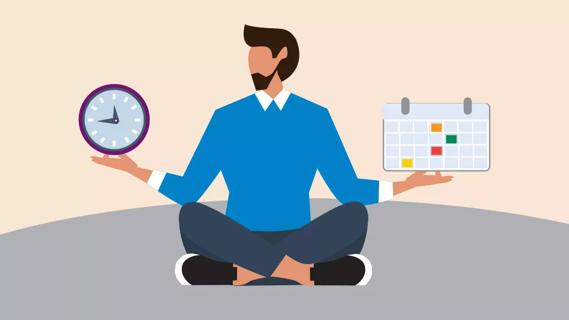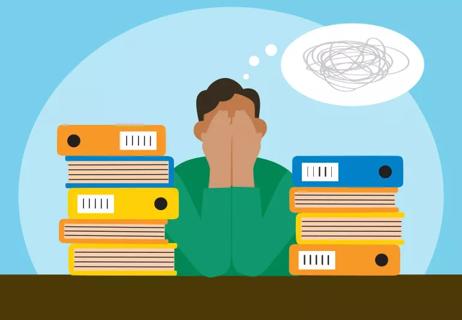Go ahead, clear out that clutter — it’s good for you!

Temperatures are finally warming up, and you can feel it in your bones — the urge to throw open all the windows, “Marie Kondo” your wardrobe and start loading up boxes for donation.
Advertisement
Cleveland Clinic is a non-profit academic medical center. Advertising on our site helps support our mission. We do not endorse non-Cleveland Clinic products or services. Policy
For many of us, the renewal of spring signals that it’s time to get into spring cleaning mode. And according to clinical psychologist Dawn Potter, PsyD, decluttering isn’t just good for our homes — it can actually lift our moods, as well. She shares tips for cleaning up and explains how it can help our mental state.
Whether or not you actually engage in the act of spring cleaning, you probably still know that it’s a thing — kind of like New Year’s resolutions. But why?
“We have this idea that spring is a time to clean,” Dr. Potter says, “which may be, in part, because spring has always been a time of renewal and rebirth.” So, think of spring cleaning as a renewal and rebirth of your living space.
Plus, if you live somewhere where it gets dark and cold in the winter, you might start feeling more energized as the weather warms up and the days get longer. This can make you more motivated to get moving and clean up your home.
Dr. Potter walks through some of the ways that tidying up your space can be good for your brain and your body — not to mention your home.
Spring cleaning is a kind of ritualized behavior, our own act of starting anew to accompany the themes of spring. Plus, our brains like it when we finish what we’ve started. So, when a task is accomplished, our brains feel good, which reduces tension.
Advertisement
“Cleaning produces a tangible result that we can both see and feel,” Dr. Potter says. “We can look at it afterward and think, ‘Oh, that looks great!’ It gives us the satisfaction of doing something meaningful.”
Feeling overworked and overwrought? Some people find cleaning to be a soothing way to work out their stress.
“Sometimes, if you’re faced with other problems that you can’t address at the time, or if you’re just feeling overwhelmed, you may find that cleaning helps you restore a sense of control,” Dr. Potter explains.
“Having a clean and organized home means you know where everything is, which can help you feel in control,” Dr. Potter explains. “There’s also peace of mind that comes with having an aesthetically pleasing place to wake up in and return to at the end of your workday.”
If you work from home, keeping your space neat and clean can prevent workday distractions (“Ugh, I really should wash those dishes…”) and contribute to better focus and motivation.
This can be especially important if you already have trouble focusing, as with attention-deficit/hyperactivity disorder (ADHD). “The distraction of clutter can be worse for people who are already struggling to keep themselves focused,” Dr. Potter says.
Remember that scene from “Home Alone” when young Kevin McCallister sets a bunch of toy cars all over the floor so that the men robbing his home will slip on them? Yeah, it’s like that.
When your floor is clean and uncluttered, you’re less likely to trip and fall over stray objects. “This is really important for older adults, as well as for people with young kids,” Dr. Potter notes.
Cleaning the windows and vacuuming the living room can actually get those endorphins pumping. “The act of cleaning itself is a physical act, so depending on how vigorously you’re cleaning, you may actually get in a bit of a workout,” Dr. Potter says.
Cleaning your house isn’t a substitute for exercise. But it’s still good for your body to be up and moving around, and walking back and forth as you put things away can also help you hit your daily step goal.
A 2010 study shows that people who describe their homes as “cluttered” or full of unfinished projects were more likely to suffer from depression and fatigue than those who describe their homes as “restful” and “restorative.”
“Some core symptoms of depression are low interest, lack of motivation and fatigue, so someone experiencing depression may be less likely to maintain the focus required to fully finish tasks like cleaning and organizing, to care whether there are dirty socks on the floor,” Dr. Potter explains.
Advertisement
“Conversely, though, if a person with depression can push themselves or can figure out ways to make it easier to clean up or to organize, that may help with their energy, focus and mood.”
Remember that many of the cleaners and disinfectants you use for cleaning your home — even the “green” ones — need to be used carefully, especially if you have kids and pets. Many of them contain ingredients that can irritate your skin, eyes, nose and throat and can be poisonous if swallowed.
Not sure where to begin? Dr. Potter shares tips for getting the ball rolling — with the reminder that once you can get past the starting point, it becomes easier to get the task done.
Advertisement
Just as you wouldn’t climb Mount Everest without a plan to get to the top, neither should you tackle months of clutter atop your desk and within your closets. By planning out your efforts and taking it bit by bit, victory is within reach.
Advertisement
Learn more about our editorial process.
Advertisement

Connecting with others, going for a walk or focusing on sleep quality can help more than you might realize

You may not always notice it, but your mental health has just as big of an impact on your well-being as your physical health

Rethinking your Mondays might make the ‘Sunday scaries’ a thing of the past

Get to know the resources they have on and off campus, including their friends

College is a time of big transitions, intense stress and major lifestyle changes

Wishing you made a different decision can help you learn from your mistakes

This term from TikTok encourages positive affirmations around ‘luck’

Start a conversation, gently ask questions and offer help without judgment

Type 2 diabetes isn’t inevitable with these dietary changes

Applying a hot or cold compress can help with pain